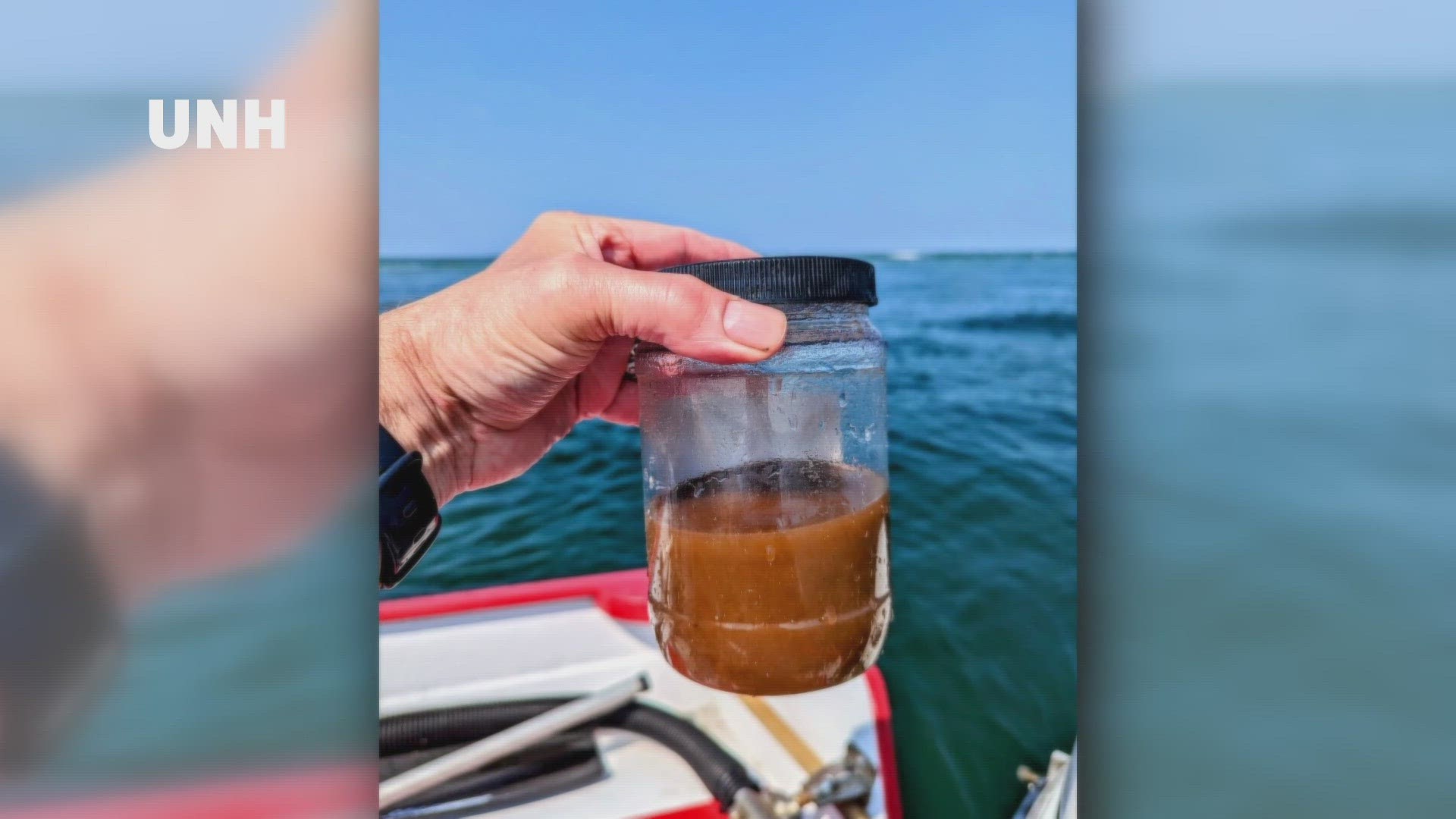PORTLAND, Maine — A hundred-mile-long stretch of algae bloom that reaches from Penobscot Bay to Martha's Vineyard was spotted by researchers in April.
Liz Harvey, an associate professor for the University of New Hampshire, said the fact the algae bloom has not gone away is what makes it significant.
"Normally we do see this species commonly in the Gulf of Maine... what makes it unique is the size," Harvey said.
The algae is brown and looks like coffee grounds when out of the water. It gives the ocean water a brown tint. It's all due to the species of phytoplankton that makes up the bloom.
Harvey added that the algae is not uncommon and is nontoxic. The concern comes with the possibility that when such a large collective of algae dies, it can choke off oxygen to fish and shellfish living on or near the ocean floor.
"We're all sort of watching to see what the oxygen concentration is going to do when the algae starts to decline," Harvey said.
It's not known what caused the algae bloom but Harvey said the theories could come from the harsh rain runoff we've seen this year combined with the sunlight offshore. She added it could have been low wind speed along with warming waters due to climate change as well.
But while offshore waters are seeing an intense algae bloom, inshore areas such as Casco Bay are seeing the opposite.
Ivy Frignoca with Friends of Casco Bay said preliminary data from this summer is pointing to a lower-than-average number of algae blooms in the bay.
"What happens when there is not enough algae, is that is the basis for the whole food chain and that is the basis for what feeds everyone else," Frignoca said. "So I don't know what a single anomalous year does in the scope of it, but we need to look at the data this fall and compare it to last."
Frignoca said her colleagues and other researchers around the coast of New England will meet this fall to share their findings. She added the Gulf of Maine is ever-changing, especially with climate change.
"Things are changing, they're changing really fast and they're changing in ways we can't always predict."

